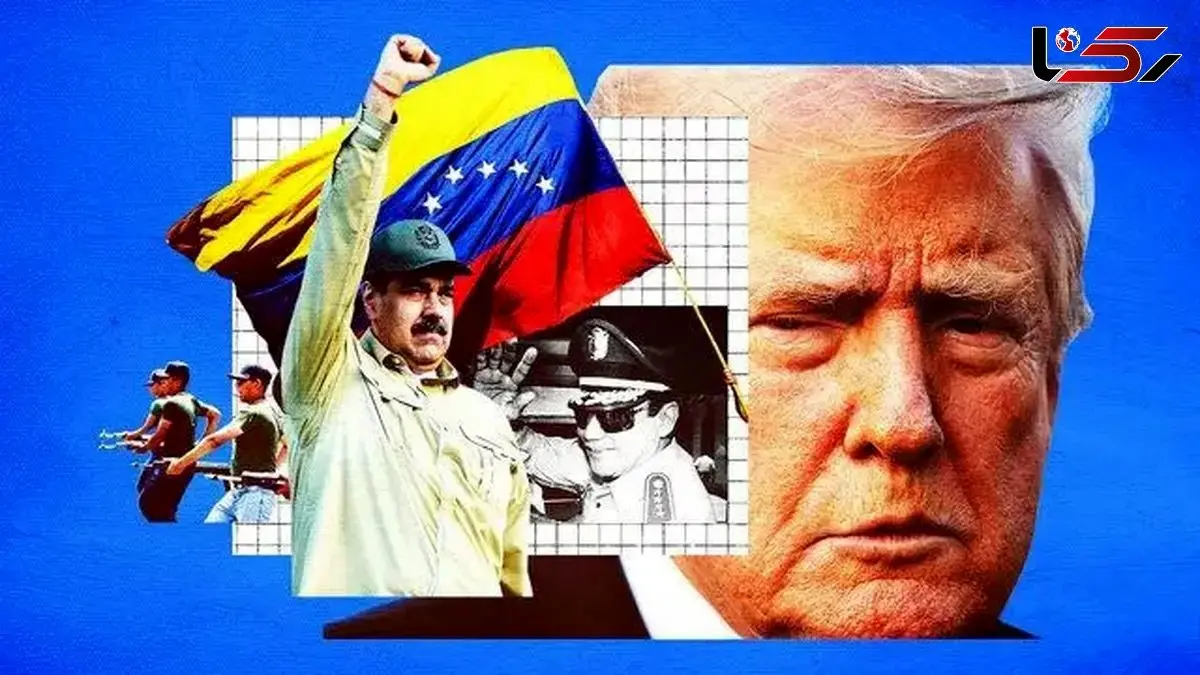Where Is Venezuela Headed? Views and Predictions
Rokna Political Desk: The recent tensions between the United States and Venezuela over drug transit, accompanied by an increased likelihood of military action, signal a new trajectory in international law and a potential reshaping of the framework governing the use of force.

In a commentary published, Arash Maleki wrote: The dispute between the United States and Venezuela regarding the transit of narcotics has, for several months, escalated into a state of tension, and fears of a severe military confrontation are now greater than ever. The absence of the rule of law and rampant structural corruption — as the logical outcome of socialist authoritarianism — have pushed a country endowed with the world’s largest oil reserves, along with considerable amounts of natural gas, gold, and diamonds, into a situation in which 82 percent of its population currently lives below the poverty line.
Another consequence of this situation is the growth of the narcotics economy and Venezuela’s transformation into one of the major hubs of production and transit of drugs in Latin America. Although precise statistics are unavailable, it is estimated that more than six hundred tons of various narcotics are produced and distributed annually through Venezuelan territory, with the United States receiving 10 percent of that total.
According to figures released by the White House, an average of two hundred Americans died daily in 2024 as a result of drug misuse. This reality prompted the Trump administration to employ all hard and soft tools to control and curb the situation. The announcement of a 50-million-dollar reward for information leading to the arrest of Maduro, as well as the designation of Venezuela’s main drug-trafficking network — known as the Cartel de los Soles — as a terrorist organization, can be understood in this context.
Additionally, there have been twenty-two attacks on narcotics-carrying vessels in the maritime areas between the two sides since September of this year. It is now being reported that U.S. military forces near Venezuela are on alert and that a military strike on Venezuelan territory is imminent.
Such an event, if it occurs, would constitute an international armed conflict and produce consequences under international law. Throughout their five years in office, Trump and his cabinet demonstrated their intention to alter the existing international legal order and, in their decision-making, disregarded certain prevailing norms they deemed contrary to U.S. national interests (as defined by them). Accordingly, a potential U.S.–Venezuela war can be seen as aligned with this new paradigm.
Under the current framework, states, pursuant to paragraph 4 of Article 2 of the UN Charter, are obligated to refrain from the use of military force in their relations with one another. The only exceptions to this rule are contained in Articles 42 and 51 of that same international instrument: the former permits collective military action in response to threats to or breaches of international peace and security under the authority of the Security Council; the latter recognizes the right of states to respond militarily to an armed attack on their territory, pending Security Council action, in accordance with the principles of “proportional force” and “military necessity.”
In the case of the United States and Venezuela, there has been no armed attack on U.S. territory, and any potential military action by U.S. forces would not fit within the framework of classical self-defense. In other words, the United States claims that the Venezuelan government has, through organized activities, allowed traffickers to transit narcotics and, in exchange, shares in the profits.
The result of these actions is the death of thousands of American citizens as a consequence of the Venezuelan government’s sovereign decisions. Thus, the situation can be categorized under narcoterrorism, and the use of military force could be invoked to combat it.
It is evident, however, that such a justification is inconsistent with current international legal standards, and any resort to armed force would constitute an act of military aggression. If the United States intended to operate strictly within the framework of established international law, it would have pursued this path through the UN Security Council, whose authorization would have granted international legal legitimacy to U.S. military action.
Yet the Trump administration does not appear inclined (for whatever reason) to abide by these rules. Although the legal norms governing international peace and security occupy the highest tier in terms of hierarchical importance, the inherent dynamism of international law keeps the door open to change in these norms.
Will U.S. military action in response to narcoterrorism alter the prevailing paradigm governing the use of force in international law? The answer to this question will be determined over time through unilateral state practice, judicial precedent, and scholarly doctrine.
Send Comments